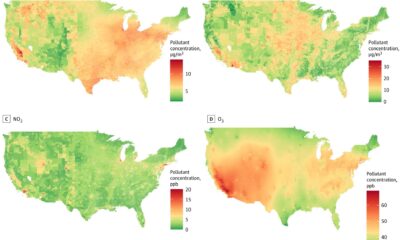Business
The AI Skills Gap is putting public sector projects at risk, according to new research

The shortage of artificial intelligence (AI) skills is holding back public sector projects, with 60 percent citing the shortage as their biggest implementation challenge.
Although all sectors are facing a shortage, the gap is by far the largest in the public sector. According to Salesforce research Only 28 percent of public sector IT professionals claim to be experts in using generative AI as part of their work, while only 32 percent say they are experts in understanding generative AI use cases such as data analytics.
Overall, only 30 percent said they are experts in implementing AI within their organizations, hampering frontline citizen services in the public sector.
“Training and skills development are critical first steps for the public sector to realize the benefits of AI,” said Casey Coleman, SVP of Global Government Solutions for Salesforce. “By investing in new skills, such as rapid development, public sector leaders can empower their workforces to use AI to increase productivity, build deeper relationships with constituents and improve the quality of public services.”
According to DeloitteAI could save hundreds of millions of government staff hours and billions of pounds every year as departments work to take their AI skills and capabilities to the next level.
Automating routine tasks, reducing risk and improving customer experience were cited as the key benefits for the public sector as they improve their AI implementation.
Sheila Flavell CBE, Chief Operating Officer of FDM group, said: “In light of a growing skills gap that is hindering AI adoption in the public sector, organizations must take control and prioritize the skills training of their workforce so they can understand and implement AI safely and effectively. Striking a balance between speed and mitigating risk is a central challenge for all organizations, but without the right skills training the challenge becomes even more difficult. The public sector must implement training programs to upskill and reskill staff, equipping them with the necessary specialist skills to lead innovations in AI and ultimately deliver the best outcomes for frontline public sector projects sector.”
Elizabeth Anderson, CEO of Digital Poverty Alliance commented: “There is no doubt that AI is changing the way organizations, including public sector departments, operate and helping to increase efficiency, but we must also remind ourselves that AI risks widening the digital divide . Everyone needs basic digital skills training to access essential online services, yet organizations want to jump in before the country can walk by chasing AI, leaving millions without access to online services. The situation calls for immediate action, and digital skills training must be at the heart of the manifesto for the new government.”
After a lack of AI skills, 38 percent of public sector workers said data quality was the second biggest pain point holding back their AI implementation, followed by 36 percent who cited data security.













